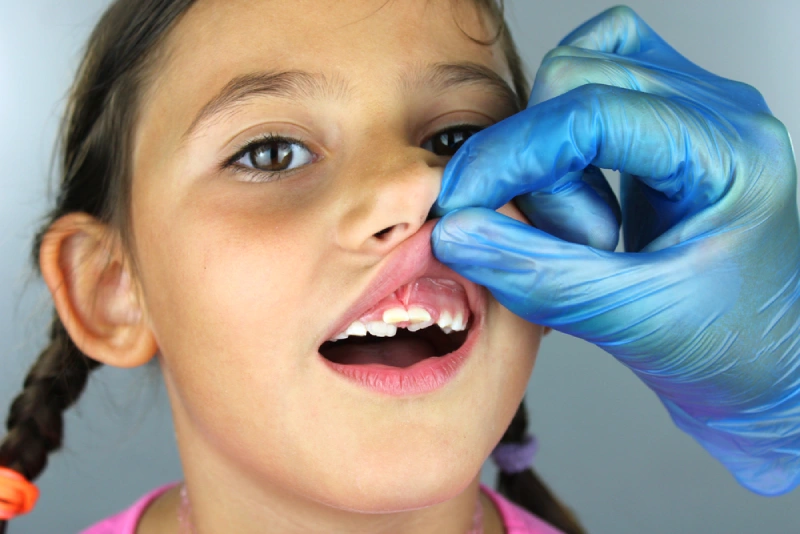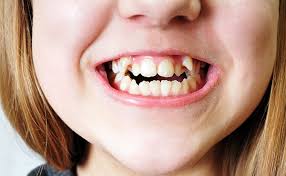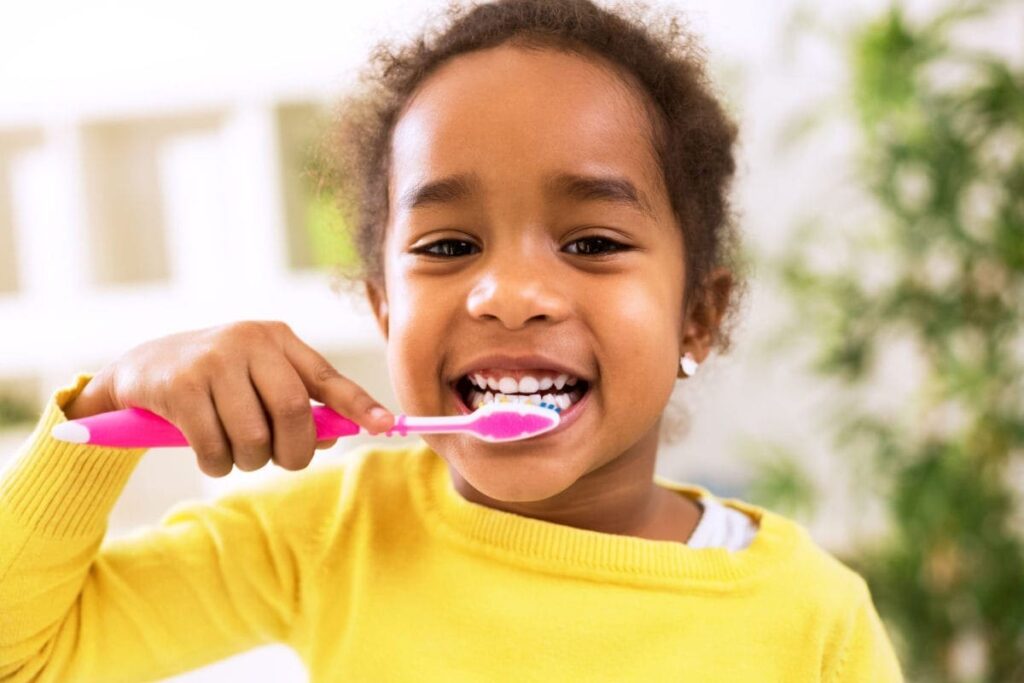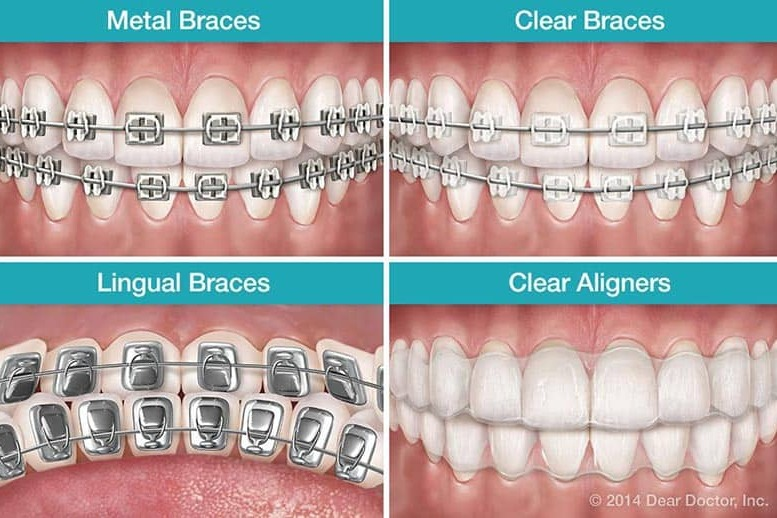Baby shark doo-doo, doo-doo, doo-doo…by now, you’ve probably heard the viral song. But did you know that there’s actually a phenomenon called shark teeth in kids? If you’re a parent and you’re observing this phenomenon in your little one, here’s what you need to know.
Teeth Behind Teeth: What Shark Teeth Are
“Shark teeth” in children occur when adult (permanent) teeth grow in behind baby (primary) teeth instead of the primary teeth falling out and being replaced. Essentially “shark teeth” is the unofficial name for a type of “ectopic eruption” that occurs in kids of a certain age.
As you may recall from our blog “When Do Molars Come In? The Arrival of Your Child’s Chewing Champions”, eruption is a fancy name for a tooth coming in, and it’s a normal part of odontogenesis, which itself is simply a term for “oral development”.
While adults can have teeth behind teeth too, when an adult has a permanent tooth behind another permanent tooth, that is not known as “shark teeth”. Shark teeth in kids extend only into the transitional dentition period.
Shark teeth can occur on the bottom or top rows.
Why Shark Teeth Occur
There are a number of reasons why shark teeth may occur in children. They include:
- Overcrowding in the Jaw: When there’s not enough space in a child’s mouth for all teeth to align properly, this can force adult teeth to erupt behind baby teeth.
- Angled or Early Eruption: Sometimes, a child’s adult tooth emerges at an angle before the baby tooth has fallen out. This can happen if the adult tooth doesn’t dissolve the roots of the baby tooth to make space for itself. When this happens, the adult tooth can come in behind or beside the baby tooth, causing a “shark teeth” appearance.
- Genetics: Genetics may play a role in the appearance of shark teeth in kids.
- Thumb-Sucking or Other Habits: Habits like prolonged thumb-sucking may influence the development of shark teeth.
- In Rare Cases, Specific Conditions: Hypothyroidism, down syndrome, and other medical conditions may contribute to the development of shark teeth in kids.
My Kid Has an Adult Tooth Growing in Behind a Baby Tooth. Should I Worry?
While noticing some teeth that grow behind other teeth in your child’s mouth might look concerning and abnormal, it’s actually more common than you might think. So don’t worry too much, and certainly don’t panic.
There are scenarios in which a shark tooth might be cause for concern, so if you notice them in your child, it might be worth seeing your dentist. But in the vast majority of instances, shark teeth will normally resolve on their own.
One of the questions we get often here at the Super Dentists is “Will shark teeth move forward?” Sometimes, people ask “Will shark teeth resolve on their own?”.
The answer is that yes, they can and may resolve on their own! Sometimes they do not, however, move forward and push out the baby teeth in front of them on their own.

Managing Shark Teeth at Home as a Parent
In most cases, where shark teeth can be dealt with without medical assistance, here’s what to do to help them knock out the loose baby teeth and begin moving toward their natural spot:
- Tell Your Kids to Wiggle Their Baby Teeth: Give them an excuse to fidget and get out that excess energy! Encourage your child to gently wiggle the loose baby tooth (if it is actually loose). If it’s not loose, don’t have them try to wiggle it.
- Practice Good Oral Hygiene: Emphasize brushing and flossing to keep the area clean and prevent cavities.
- Promote a Healthy Diet: Limit sugary foods and drinks that can contribute to further tooth decay and load up on foods high in vitamins, minerals, and nutrients that may help promote healing.
- Have Patience: Reassure your little ones that most shark teeth situations resolve naturally as their mouth develops but that if they don’t, there are easy solutions to provide a remedy!
When to See a Dentist
Here are some of the reasons you might consider bringing your kid with “shark teeth” to a dentist:
- The baby tooth doesn’t become loose within three months.
- The loose teeth cause unusual pain or discomfort.
- The primary tooth is still firmly in place a few weeks after the shark teeth have begun to emerge.
- The shark teeth are coming in behind or in front of the primary molars.
- The shark teeth are causing issues with crowding or speech.
Check Your Child’s Shark Teeth: Book a Visit to The Super Dentists Today
Want to have your little one’s “shark teeth” checked out to make sure everything is a-okay?


